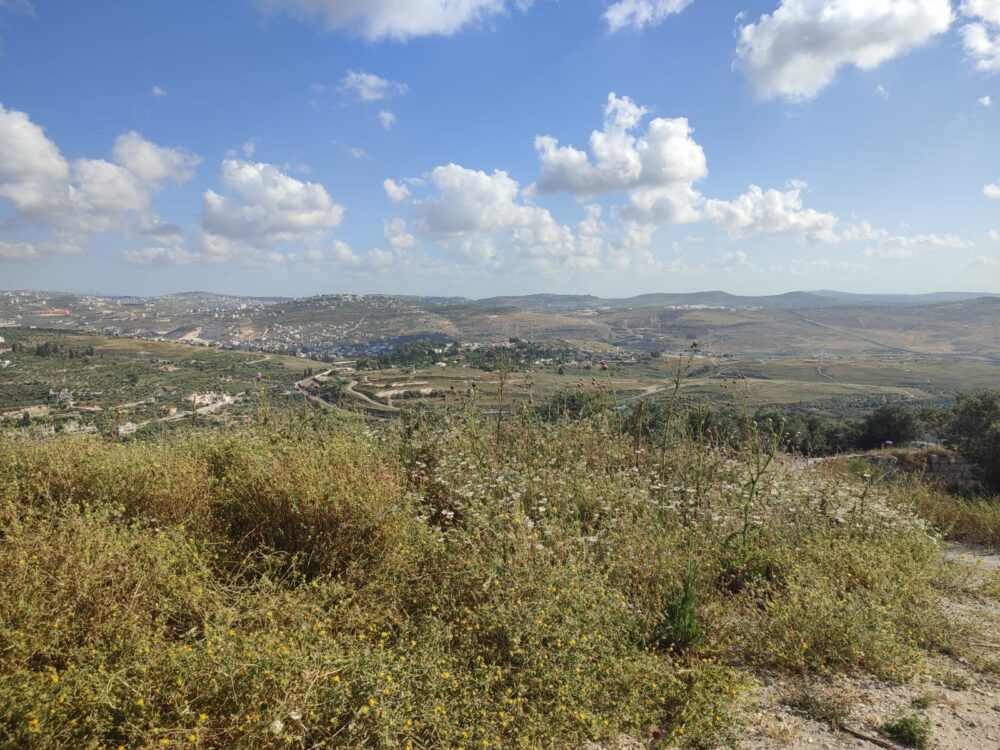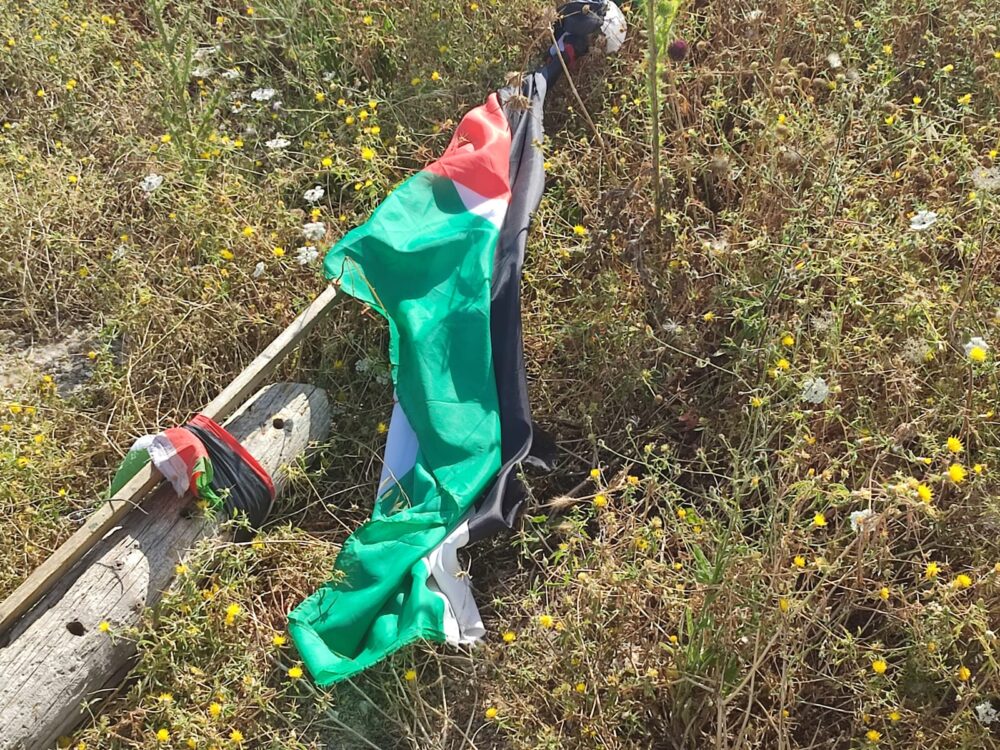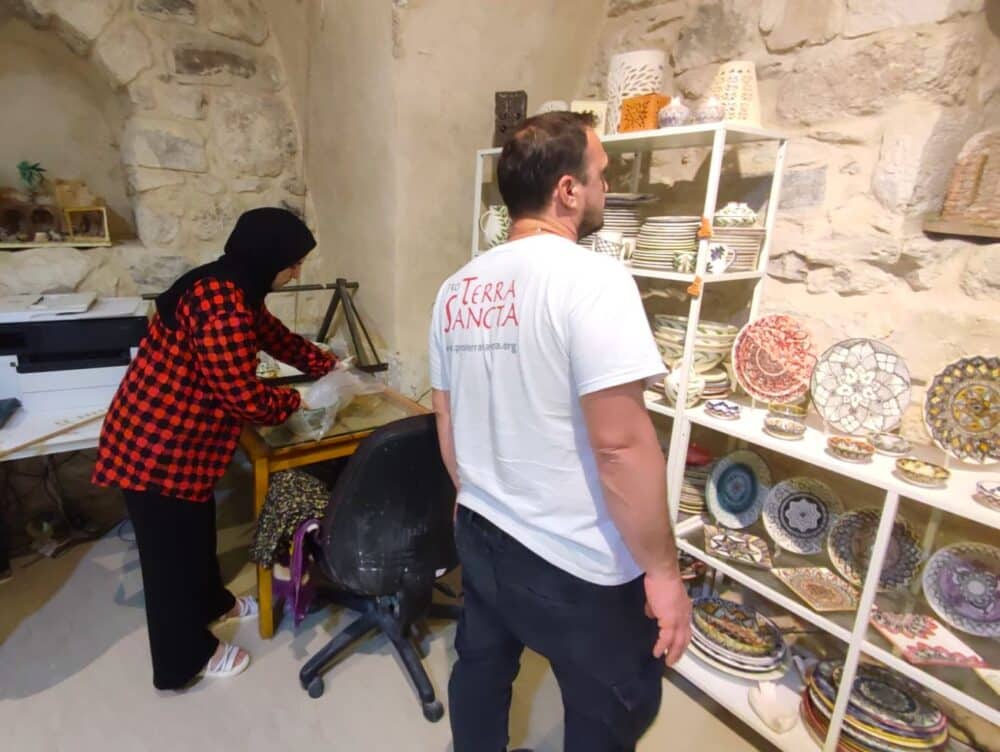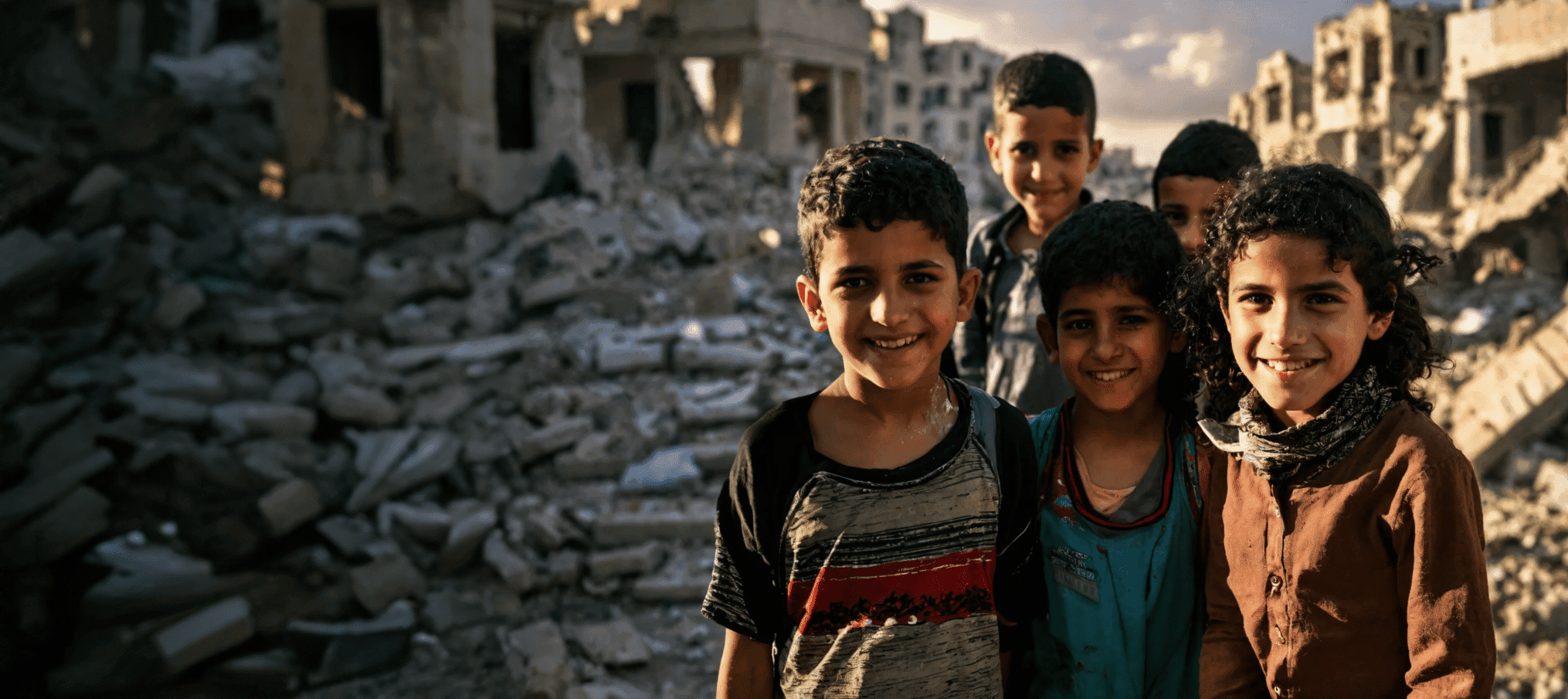"A few days ago, at a checkpoint, a soldier said to me, 'Answer this question correctly and I'll let you through.'" Iyad, the colleague who accompanies us to Sebastia, stops for a moment, and his proud Bedouin gaze is lost in the dunes of the Judah desert.
His eyes watch as the dunes slowly turn into blooming hills, passing from wadis of rock stained with fine grass to green meadows, and then to endless fields of olive trees, the gold of Palestine. We are on the road from Jericho to Samaria, passing through the Jordan Valley.
"He asked me," he continues, "'What do you want most right now?', and I answered without thinking: peace."
The answer to the deliberately provocative question has taken the soldier who let him pass and it strikes us too, because it is true. The colleague could have launched into arguments and recriminations, he could – and perhaps, according to many, should have – pointed the finger at those responsible and asserted his reasons; He preferred to respond with the sincerity of his heart, with the realism of someone who has been living in uncertainty and fear for months. Peace first, the rest follow.
And yet Iyad, born in a refugee camp in Jordan to two Palestinian parents: his mother born and raised in Palestine, his father forced to leave his homeland during the Six-Day War in 1967, would have every right to do so. For years Iyad grew up in the camp without knowing an important part of his family and it was only at the age of 14 that he was able to return to live in Jericho, near the place where his grandfather's village was located.
His life has never been easy, but in the last few months it has gotten a lot worse: he tells us that in January his father was wounded in the arm by a bullet while playing with his nephew in the garden, and that a few days ago his brother's house was demolished by bulldozers only because from one day to the next someone decided that the borders of Jericho had to be moved. "Only," he says, "to scare us." He's proud of all that is part of his history, is personal one and that of his land, and of the historical heritage of that land, a treasure that speaks of a common history. "It belongs to everyone," he concludes, "not the exclusive possession of anyone."

Arrival in Sebastia
After about an hour we finally arrive in Sebastia, the ancient Samaria, capital of the northern kingdom. A city thriving with kings and prophets, it was made even more beautiful by Herod the Great who changed its name to Sebastia in honor of the Roman emperor, Sebastòs. The body of John the Baptist was buried here, and the Crusaders made it a powerful stronghold.
Today it is a small town of 4000 inhabitants, an island like many others in the West Bank, surrounded and squeezed by settler settlements on the surrounding hills that expand more and more in a suffocating grip. It was an important destination for pilgrims, who flocked in large numbers to see and touch the only place where the burial of John the Baptist is remembered together with Elisha and the other great prophets, but over time the degeneration of the situation has erased Sebastia forever from the maps.
Before October 7, tourists came in fits and starts, now no one comes. Not even the Arabs of Galilee who used to go here to walk in the green hills of Samaria and taste foods of ancient tradition come anymore. They don't come because they fear the increasingly frequent and violent ambushes of settlers on the roads.
When we arrive we are updated on the local situation: here too there are numerous stories of episodes of violence, stories of friends killed in the street while returning from the fields, hit by bullets from who knows where; "My cousin was also injured while he was in the square with friends," a boy told us. A senseless violence that oppresses everyone. Yet, alongside the sadness, the eyes shining with injustice and the long silences between one story and another while the head fills with "why?", there are no recriminations, there is no violence in their words.

Sparks of Hope
And that's not all: there is the hope of those who do not want to give up and want to continue fighting for the future. With simple, everyday gestures, but full of incredible strength. "You should see," Shady explains, " how children's eyes light up every time they take part in the soccer tournament!" Shady has been a colleague and friend for years who manages the guesthouse in Sebastia built thanks to the collaboration between Pro Terra Sancta and Mosaic Center Jericho. A few months ago, given the absence of tourists and the empty guesthouse, in the midst of the violence, Shady decided to organize a five-a-side football tournament in Sebastia, involving many children and young people from the city.
"I was reminded of a phrase by Osama Hamdan who, since I have a degree in physical education, often said to me, 'Shady, you should create a football team to put a smile back on these children's faces.'" So I did: first I created a team of very young people, then, since the initiative was very popular and hundreds of registration requests arrived, I thought of organizing this tournament involving more teams".
The tournament is dedicated to the memory of Osama, our dear friend and founder of the Mosaic Center in Jericho, who recently passed away due to cancer. His memory permeates the lives of Shady, Iyad, and all these places we see. We all learned a lot from him, especially the love and care for our heritage and our land. "Hope," the young people of Sebastia explain, "is born from this awareness of ourselves, which allows us to continue to fight for life even in the midst of this disaster, even when it is difficult." For this reason, Pro Terra Sancta immediately chose to support the initiative.
In addition to dedicating himself wholeheartedly to the training of the teams and the organization of the tournament, Shady is fixing up the rooms of the guesthouse. "Small maintenance interventions," he explains as he accompanies us on a visit, "so when the tourists come back they will be ready!"
His enthusiasm is disarming.
For lunch we go up to Nisf Jubeil, a village located a little further up on the hillside. Here, too, the Mosaic Center and Pro Terra Sancta have launched activities to create opportunities for sustainable tourism; Here too there is a very clean guesthouse. This detail strikes us: "I keep it tidy," explains Rami, who runs it, "because I hope that one day my friends will come back. This place has already given me so much and I take care of it as if it were my home."
Before returning to Sebastia da Shady, we visit the ceramics production centre, where the artisans continue to work and create magnificent plates, bowls and cups. Someone to sell them to can be found, waiting for better times, when people come back here.

The boys of five-a-side football
The training is held in a school: "We used to play in a public field, but as the violence increased, we preferred to move to a closed place where the children are safe," Shady explains. It's a spectacle: in itself there is nothing exceptional, a training session like many others that takes place on an asphalt field between two rusty metal doors, yet for these children it is something incredible. They work very hard and whizz between the proud pins, showing off their new jerseys with the logos of Pro Terra Sancta and the Mosaic Center as if they were the logos of Juve or Milan. Everyone here takes everything very seriously, no one is lazy or bored.
In the stands, a crowd of onlookers cheers for the Sebastia team, all children and teenagers who do not miss a second of the game. Many of them don't know how to behave with us at first: "Some of them," they explain, "have never met a foreigner, because we are a bit isolated." We're going to take the field for the game, it's a really important moment. Then it gets late and we have to leave again, the road is uncertain and we have to return to Jerusalem.
The game is over, but Shady, Rami and some of the children stay in the field a little longer. As we leave them behind us, we have the feeling of leaving a special place, an island of hope and joy on the top of the hill, surrounded by a sea of violence and chaos. A few kilometers from here are Nablus and Jenin where every day violence calls for more violence, in an endless clash of blood. But here today we have seen a little flame of hope towering over the hill of the ancient city of Samaria, called "the watchman" for centuries. Today they are the sentinels, the soccer kids of Sebastia.



















